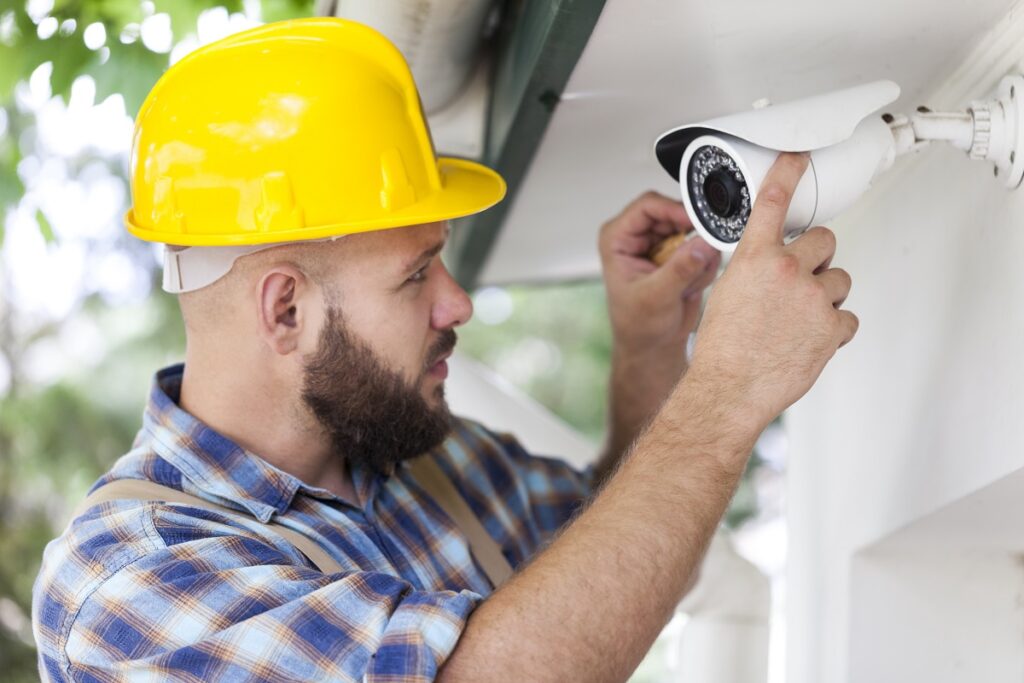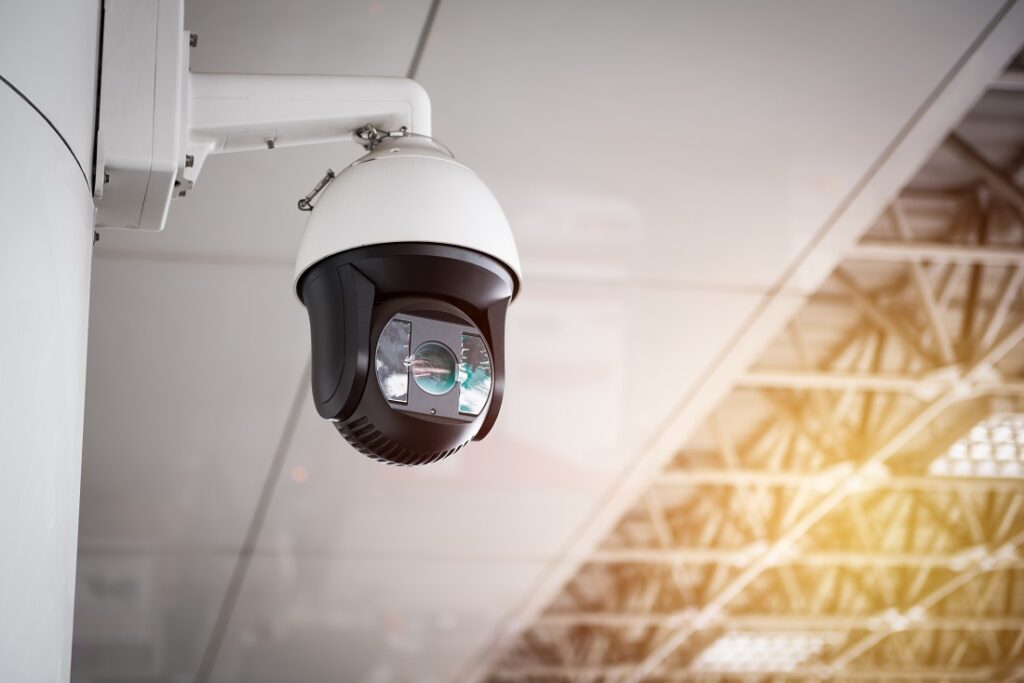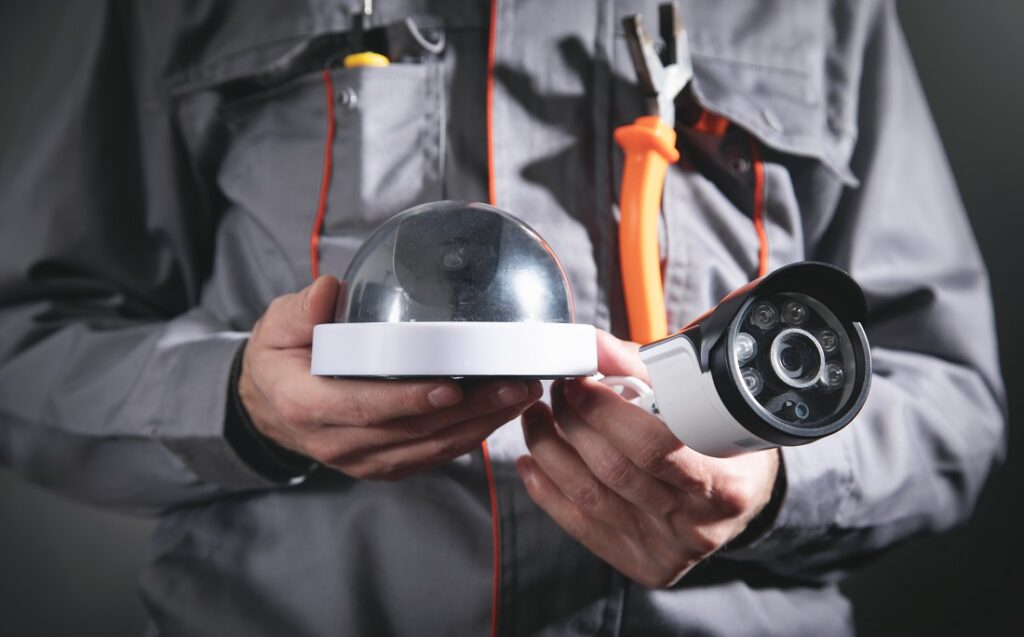CCTV Maintenance Essentials: Your Pathway to Uncompromised Security

CCTV Maintenance refers to the regular inspection, repair, and preventative tasks performed on Closed Circuit Television (CCTV) systems. This activity is crucial to ensure the systems are functioning optimally.
Table of Contents
Importance of regular CCTV Maintenance
A robust and well-functioning CCTV system is a critical element in maintaining the security of a premise. However, like any other piece of technology, CCTV systems too require regular upkeep and maintenance to perform their best. Here’s why regular CCTV maintenance is so crucial:
1. Ensuring Optimal Performance: CCTV systems are used to monitor and secure spaces constantly, making it necessary for them to function optimally at all times. Regular maintenance ensures the system’s components, like cameras, cables, and storage devices, are in perfect condition to deliver the expected performance.
2. Preventing System Failures: Any system failure in a CCTV setup could potentially lead to security risks. Regular maintenance aids in identifying and rectifying potential issues before they escalate into significant problems that could compromise the system’s functionality and security.
3. Increasing Longevity of the CCTV System: Regular maintenance can significantly increase the lifespan of a CCTV system. Ensuring the cameras, cables, and other components are clean and in good condition helps prevent wear and tear, ultimately extending the system’s life.
4. Cost-Effective: Regular CCTV maintenance can be seen as a long-term investment. It helps avoid the high costs associated with system replacement or major repairs that might occur due to a lack of maintenance. The small cost of routine maintenance can prevent these large unexpected expenses.
5. Ensuring Legal Compliance: Certain regions have legal obligations for maintaining CCTV systems, particularly those used in public spaces or workplaces. Regular maintenance ensures your CCTV system complies with these legal requirements, avoiding potential penalties or legal issues.
6. Data Integrity: With regular maintenance, you ensure that the data captured and stored by the system remains intact and accessible. This is particularly important where CCTV footage is used for legal or evidentiary purposes.
In summary, regular CCTV maintenance is not just about keeping a security system functional. It’s an essential practice that maintains the system’s reliability, prolongs its lifespan, ensures legal compliance, and upholds the integrity of the data it captures. It’s an all-encompassing practice that safeguards the value of your security investment.
Understanding the Basics of CCTV Systems

Types of CCTV Systems
CCTV systems can be categorized based on their mode of operation, connectivity, and the nature of equipment used. Here are the main types:
1. Wired CCTV Systems: As the name suggests, these systems are connected using wires. The cameras in these systems are connected to the recording device and monitor using coaxial cables or Ethernet cables in the case of digital systems.
2. Wireless CCTV Systems: These systems use wireless transmitters and receivers to connect cameras to the recording device and monitor. While they still require a power cable, the absence of video cables makes the installation process simpler and cleaner.
3. IP-based CCTV Systems (Network Cameras): IP cameras or Network Cameras are digital video cameras that transmit data over a network. These systems offer various benefits such as high resolution, scalability, remote viewing, and can be easily integrated with IP intercom system.
4. Analog CCTV Systems: Analog systems represent the traditional type of CCTV, where cameras are connected to the recording device (DVR) using coaxial cables. These systems typically offer lower resolution compared to digital systems, but are generally simpler and more affordable.
Here’s a comparison chart for your convenience:
| Type of CCTV System | Pros | Cons |
|---|---|---|
| Wired CCTV Systems | Reliable signal quality, not prone to interference, suitable for large premises | Installation can be complex due to wiring, harder to move once installed |
| Wireless CCTV Systems | Easy installation, cameras can be moved freely, modern aesthetic | Depend on the strength of wireless signal, can be prone to interference |
| IP-based CCTV Systems | High resolution, scalability, remote access | More expensive, require good network infrastructure |
| Analog CCTV Systems | Cost-effective, simple to use | Lower image quality, lack of advanced features, limited scalability |
Understanding these different types of systems is crucial for CCTV Maintenance. Each type has specific maintenance needs, potential issues, and troubleshooting methods. Ensuring your CCTV system is well-maintained starts with understanding its type and corresponding needs.
Key Components of CCTV Systems
Understanding the key components of a CCTV system is fundamental to effective maintenance. Here are the primary components of a typical system:
1. Cameras: Cameras are the eyes of any CCTV system. They capture video footage of the monitored areas. Different types of cameras (dome, bullet, PTZ, etc.) are used based on the specific requirements of the location.
2. Cables: Cables provide the necessary connectivity for the system. In wired systems, they connect the cameras to the DVR and the power supply. In wireless systems, power cables are still required. There are also network cables in IP-based systems.
3. Digital Video Recorder (DVR) or Network Video Recorder (NVR): These devices record and store the video footage captured by the cameras. DVRs are used with analog systems, while NVRs are used with IP-based systems.
4. Monitor: Monitors or screens are used to view the live or recorded footage from the cameras. They can range from simple computer screens to multi-screen setups in larger systems.
5. Power Supply: All components of the CCTV system require a power source to function. The power supply might be individual for each camera or a centralized source, especially in wired systems.
6. Storage: DVRs and NVRs have built-in storage for recording video footage. However, additional or external storage devices may be used if the built-in storage is not sufficient.
7. Accessories: This includes various additional components like mounts for cameras, housings, IR illuminators for better night vision, and other elements that aid in the functioning and installation of the system.
Here is a simplified chart summarizing the components:
| Component | Function |
|---|---|
| Cameras | Capture video footage |
| Cables | Provide connectivity and power |
| DVR/NVR | Record and store footage |
| Monitor | Display live or recorded footage |
| Power Supply | Power the system |
| Storage | Additional storage for footage |
| Accessories | Aid in the functioning and installation of the system |
The Functionality of Different CCTV Systems
The functionality of CCTV systems varies based on their type. For instance, IP-based systems offer remote access and high-resolution footage, while analog systems are known for their simplicity and cost-effectiveness.
Reasons for Regular CCTV Maintenance
| Reason | Explanation |
|---|---|
| Ensuring Optimal Performance | Routine checks help ensure that the system operates at its best, providing clear and reliable footage. |
| Preventing System Failures | Regular maintenance aids in identifying potential problems before they lead to system failures. |
| Increasing Longevity of the CCTV System | Maintaining your CCTV system prolongs its life, saving you from frequent replacements. |
| Enhancing Security | A well-maintained CCTV system contributes to improved overall security. |
Common Issues with CCTV Systems

Despite their robust nature, CCTV systems may encounter certain issues over time. Identifying and understanding these common issues can facilitate better maintenance and problem-solving. Let’s discuss these problems:
A. Camera Lens Issues: One of the most frequent issues with CCTV systems involves the camera lenses. These can include blurred images, poor focus, or even a complete loss of picture. This can often be caused by dirt or dust on the lens, a misaligned lens, or hardware failure.
B. Wiring Problems: In wired CCTV systems, cables are the lifelines that connect the system. Issues with the wiring, such as loose connections, cable damage, or corrosion, can disrupt the system’s functioning, leading to signal loss or poor image quality.
C. Storage Problems: CCTV systems store a large amount of video data. Issues can arise with the storage system, such as inability to store new data, corruption of stored data, or difficulties accessing the recorded footage. These can be caused by the storage device’s capacity being exceeded, hardware failure, or software issues.
D. Network Connectivity Problems: In IP-based and wireless systems, network connectivity is crucial. Issues like signal loss, low signal strength, or intermittent connectivity can disrupt the system. These problems can be caused by various factors, including network congestion, poor signal strength, or hardware issues.
CCTV Maintenance Schedule
Creating a CCTV maintenance schedule can help ensure that your security system remains in optimal condition. Regular maintenance checks can prevent small issues from becoming major problems and can extend the life of your system. Here’s a basic example of a CCTV maintenance schedule:
| Maintenance Task | Frequency |
|---|---|
| Verify correct date and time, review recorded footage, check system logs for errors, verify camera orientations, and check for equipment damage. | Weekly |
| Clean camera lenses, inspect cables for damage, check the storage device functionality, and ensure system software is updated. | Monthly |
| Full system check, functionality of camera housing equipment, and cleaning of power supply units. | Quarterly |
| Professional service visit, review of camera setup, check focus and alignment of cameras. | Annually |
CCTV Maintenance Checklist
A CCTV maintenance checklist is an excellent tool to ensure all critical areas are covered during your regular inspections. Here is a basic checklist that you can use or modify to fit your specific needs:
General:
- Correct date and time are set on the system
- All cameras are properly oriented and fields of view are unobstructed
- Recorded footage is clear and usable
- System logs are checked for errors and warnings
- All devices (cameras, monitors, recorders, etc.) are free from physical damage
- All devices are dust-free and clean
- Camera housings are intact and undamaged
Power Supply:
- Power supply units are clean and functioning correctly
- Backup power supply is tested and working properly
Wiring and Connections:
- All cables are checked for damage or loose connections
- Cable conduits are secure and undamaged
Cameras:
- All camera lenses are clean and free of dust/grime
- Cameras are focused, and alignment is checked
- For PTZ cameras, pan, tilt, and zoom functions are tested and working properly
Recording Device (DVR/NVR):
- The device is functioning correctly
- Sufficient storage space is available
- Playback of recorded footage is smooth and clear
- Old, unnecessary footage is regularly deleted to free up storage space
Software/Firmware:
- The system’s software/firmware is up-to-date
- Software is free from glitches and errors
Network (for IP-based systems):
- Network connectivity is stable
- Bandwidth is sufficient for the CCTV system’s needs
This checklist should be followed during each maintenance session. The frequency of these sessions will depend on your specific needs and circumstances, but a good rule of thumb is to conduct a full maintenance check at least once a month. For areas with harsher environmental conditions or high-security requirements, more frequent checks may be necessary.
Professional Vs. DIY Maintenance
When it comes to CCTV maintenance, there are two main approaches – Professional and Do-It-Yourself (DIY). Both have their own set of benefits and drawbacks, and the best choice depends on the complexity of your CCTV system, your technical expertise, and the resources at your disposal.
A. The Pros and Cons of DIY CCTV Maintenance
Doing the maintenance work yourself can be a cost-effective choice, particularly for simpler or smaller CCTV systems. DIY maintenance gives you a good understanding of your system and lets you detect and fix minor issues promptly.
However, DIY maintenance can also be time-consuming and may require some technical know-how. Certain tasks, like handling complex wiring or software upgrades, can be challenging if you don’t have the necessary expertise.
B. The Pros and Cons of Professional CCTV Maintenance
Professional maintenance services can take care of your CCTV system efficiently and effectively, thanks to their technical expertise and experience. They can handle complex systems, perform thorough checks, and detect potential issues that might be missed in DIY maintenance.
However, professional maintenance comes at a cost. While it can be a worthwhile investment for larger or more complex CCTV systems, it might be less cost-effective for smaller or simpler systems.
Here’s a comparison chart to help you decide:
| Maintenance Type | Pros | Cons |
|---|---|---|
| DIY Maintenance | Cost-effective, immediate response to issues, good for smaller systems | Requires technical know-how, can be time-consuming, risk of missing complex issues |
| Professional Maintenance | Technical expertise, comprehensive checks, good for complex systems | Comes at a cost, scheduling appointments may cause delays |
Steps for Professional CCTV Maintenance
Professional CCTV maintenance usually involves a detailed and systematic process to ensure the system’s optimal functioning. Here’s a typical process:
A. Initial System Assessment: The maintenance process begins with a comprehensive evaluation of the system to understand its current status. This may include checking the system’s operation, noting any visible issues, and understanding any specific concerns from the user.
B. Component Cleaning: Over time, components like cameras and connectors can accumulate dust and grime, potentially impacting their functionality. Cleaning these components is a vital step in professional maintenance.
C. Camera Adjustment and Focus: The cameras’ positioning and focus are checked and adjusted if needed to ensure clear, comprehensive coverage of the area they monitor.
D. Software Upgrades: If necessary, the CCTV system’s software is upgraded to its latest version to benefit from any improvements or new features.
E. Checking Power Supply and Cabling: The power supply and cabling are checked for any issues, including damage, loose connections, or power supply failures.
F. Reporting and Documentation: After maintenance, a report is usually provided detailing the work done, the system’s status, and any potential issues that need to be addressed.
Professional CCTV maintenance goes beyond merely fixing visible issues. It involves a thorough inspection of the entire system, preventive maintenance to avoid potential future issues, and documentation for future reference. This comprehensive approach ensures that the CCTV system continues to function optimally and provide reliable security.
CCTV Maintenance Tools
Software Tools
1. CCTV Software Management Tools: These tools can be used to monitor and control your CCTV system, such as changing camera angles, zooming in, or adjusting other settings. They may also include features to help with troubleshooting and maintenance, such as diagnostic tools and alerts for any detected issues.
2. Firmware Update Tools: Many CCTV systems have software “firmware” built into the hardware itself. Manufacturers often release updates for this firmware, which can fix issues, add new features, or improve performance. Firmware update tools allow you to install these updates.
3. Network Analysis Tools: For IP-based CCTV systems, network analysis tools like Omnipeek can be invaluable. These tools can help you monitor the network traffic to and from your CCTV devices, identify any network-related issues, and analyze the overall performance of your CCTV system.
Hardware Tools
1. Cleaning Equipment: This can include items like microfiber cloths and compressed air cans, which can be used to clean cameras, monitors, and other hardware.
2. Screwdrivers and other Basic Hand Tools: These are used for adjusting the positions of cameras, opening up camera casings, and other physical tasks.
3. Multimeter: This tool can be used to test the electrical voltages in your CCTV system, helping you troubleshoot any power-related issues.
4. Cable Testers: These tools allow you to check if your CCTV system’s cables are working correctly and can help you identify any issues like loose connections or damaged wires.
5. CCTV Tester Monitor: This device allows technicians to locally view the video being captured by a CCTV camera. It can be extremely handy during installation and troubleshooting.
Tips for DIY CCTV Maintenance
DIY maintenance can be an effective way to keep your CCTV system in optimal condition, especially for smaller systems. Here are some practical tips:
A. Regularly Cleaning Cameras: Dust and grime can accumulate on your camera lenses over time, potentially impacting image quality. Regularly cleaning your cameras can help ensure clear images.
B. Checking and Replacing Cables: In wired systems, it’s essential to routinely check your cables for any signs of damage, loose connections, or wear and tear. If any issues are detected, replacing the cables can often solve the problem.
C. Testing Backup Power Supply: Your CCTV system’s backup power supply is vital for maintaining security during power outages. Regularly testing your backup power supply can ensure it’s ready to step in when needed.
D. Keeping CCTV Software Updated: If your CCTV system uses software (like in IP-based systems), regularly updating this software can give you access to new features, improve performance, and fix bugs.
E. Verifying Camera Views and Focus: Regularly verify that your cameras are correctly positioned and focused on their intended areas. Over time, cameras can shift due to wind, building vibrations, or other factors, leading to reduced surveillance effectiveness.
Here’s a handy chart summarizing these tips:
| DIY Maintenance Tips | Description |
|---|---|
| Regularly Cleaning Cameras | Keep camera lenses clean for clear images |
| Checking and Replacing Cables | Detect and fix wiring issues |
| Testing Backup Power Supply | Ensure power backup is ready when needed |
| Keeping CCTV Software Updated | Stay up-to-date with latest features and bug fixes |
| Verifying Camera Views and Focus | Maintain effective surveillance coverage |
Remember, DIY maintenance does require a level of technical knowledge and comfort with your system. While it can save costs, it’s important to consider seeking professional help for any issues beyond your skill level to avoid causing unintentional damage.
Understanding CCTV Maintenance Contracts

When you decide to entrust your CCTV system’s upkeep to professionals, you’ll likely encounter a CCTV maintenance contract. This is an agreement between you and the maintenance provider, outlining the services to be provided, the frequency of those services, the costs involved, and the obligations of each party. Let’s delve deeper into this subject:
A. What does a typical CCTV Maintenance Contract include?
A standard CCTV maintenance contract generally includes services like regular inspections, cleaning, software updates, and fixing identified problems. It also often outlines how often these services will be performed (for instance, monthly, quarterly, or annually), the charges for these services, and the process for requesting additional services or support.
B. Benefits of having a CCTV Maintenance Contract
Having a maintenance contract for your CCTV system provides several benefits. It offers the peace of mind that comes with knowing your system will be regularly checked and maintained by professionals. It also often means priority service and quicker response times in case of emergencies.
C. Factors to consider when choosing a CCTV Maintenance provider
When selecting a CCTV maintenance provider, several factors should be considered, such as the provider’s experience and expertise, their understanding of the latest CCTV technologies, the cost of their services, and their reputation for reliability and customer service.
CCTV Maintenance and the Law
Operating a CCTV system is not merely about technicalities; there are also legal considerations to bear in mind. These legal aspects are especially crucial when it comes to CCTV maintenance. Let’s explore some of these:
A. Legal Obligations for CCTV Maintenance: As an owner or operator of a CCTV system, you may have legal obligations to maintain the system effectively. Failure to do so could potentially lead to liabilities, especially if a failure of the system results in a security incident.
B. Data Protection and Privacy Laws: Depending on your jurisdiction, various data protection and privacy laws may apply to the operation of CCTV systems. These laws often specify how footage should be stored and secured, who can access it, and how long it can be retained. Ensuring your system is maintained in a manner that complies with these laws is crucial.
C. Compliance to Local Regulations: Local regulations may also affect how you maintain your CCTV system. For instance, some localities may have rules about where cameras can be positioned or how footage can be used. Compliance with these regulations should be a key consideration in your maintenance activities.
It’s important to understand the laws and regulations that apply to your CCTV system and ensure that your maintenance activities are in compliance. Failure to do so can lead to legal repercussions. When in doubt, consulting with a legal expert or a professional maintenance service knowledgeable about these regulations can be beneficial.
FAQs
Conclusion
In conclusion, CCTV Maintenance is a non-negotiable aspect of a well-functioning security system. It ensures the longevity of your system, prevents unforeseen failures, and reinforces the safety of your premises. Whether you opt for professional assistance or decide to take on the maintenance task yourself, a consistent and thoughtful approach will yield the best results. Remember, when it comes to security, there’s no room for compromise. Your CCTV system, when well-maintained, acts as a steadfast guard, protecting your valuable assets around the clock.